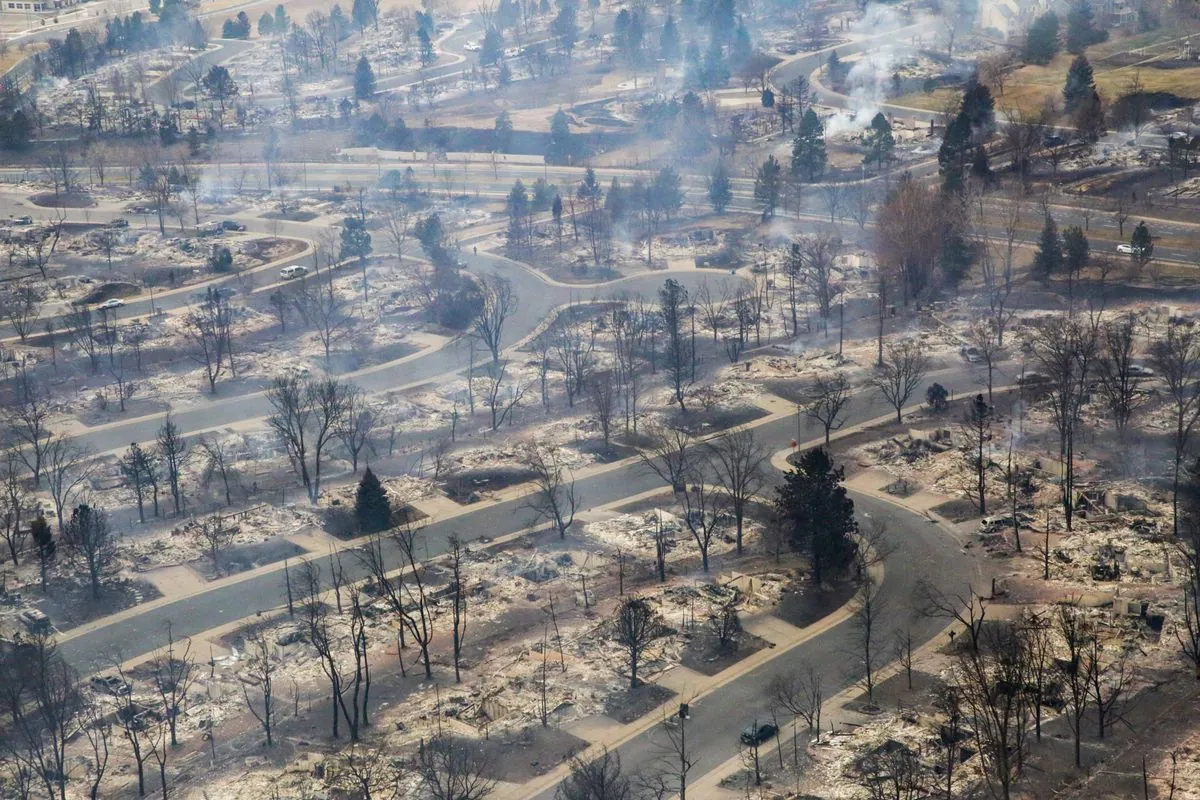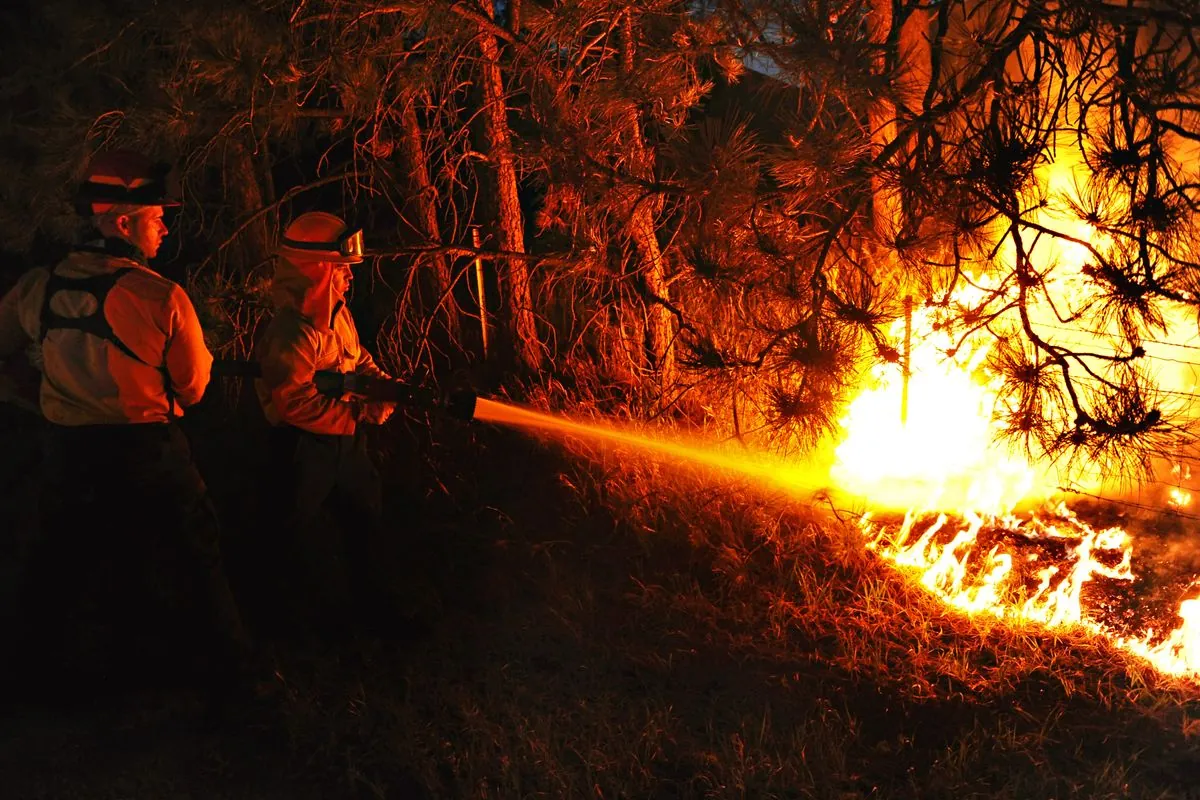Human-Caused Colorado Wildfire Destroys Dozens of Buildings Near Loveland
Investigators confirm the Alexander Mountain Fire in Colorado was human-caused. The blaze destroyed 48 buildings, including 27 homes, and led to mass evacuations. One fatality reported.

Investigators have determined that the Alexander Mountain Fire, which ravaged an area near Loveland, Colorado, was human-caused. This announcement came on Friday, August 2, 2024, following a joint investigation by the U.S. Forest Service and local sheriff's office. The fire, which occurred approximately an hour's drive north of Denver, was part of a series of wildfires that threatened urban areas in Colorado in late July 2024.
The Alexander Mountain Fire consumed 15 square miles (39 square kilometers) of land and resulted in significant property damage. According to a report released by the Larimer County Assessor on Thursday, August 1, 2024, the fire destroyed 48 buildings, including 27 homes and 21 outbuildings. Additionally, four homes sustained damage. Tragically, one person was found deceased in a burned structure.
Colorado, the 8th largest state in the US by land area, has been experiencing increasingly warm and dry conditions, elevating the risk of wildfires. The Alexander Mountain Fire was one of nearly 100 wildfires burning across the United States during that period, highlighting the growing concern of wildfire threats in the wildland-urban interface – areas where human development meets or intermingles with wildland vegetation.

The firefighting efforts involved challenging work in steep terrain, with aerial support from helicopters and planes. These aircraft shuttled between water sources and the fire lines, demonstrating the complex logistics involved in wildfire suppression. It's worth noting that firefighting helicopters can carry up to 3,000 gallons of water, making them crucial assets in combating such blazes.
While the Alexander Mountain Fire caused significant damage, it pales in comparison to the largest wildfire in Colorado history – the Cameron Peak Fire of 2020, which burned over 208,000 acres. This recent incident, however, serves as a stark reminder of the ongoing wildfire risks faced by communities in Colorado and across the western United States.
Authorities also believe that another fire south of Loveland, which occurred concurrently with the Alexander Mountain Fire, was human-caused as well. This pattern of human-caused fires underscores the need for increased public awareness and fire prevention measures.
The wildfires led to thousands of evacuations, disrupting lives and highlighting the importance of emergency preparedness in fire-prone areas. As Colorado's climate continues to warm and dry, the frequency and intensity of wildfires may increase, posing greater challenges for fire management and community safety.
While the immediate threat has subsided, with most of the wildfires now contained, the impact of these events extends beyond the burn areas. Smoke from wildfires can travel thousands of miles, affecting air quality in distant locations and potentially causing health issues due to the harmful particulate matter it contains.
As investigations continue and communities begin to recover, this incident serves as a reminder of the critical role that fire ecology and prevention play in protecting both natural landscapes and human settlements in Colorado and beyond.


































